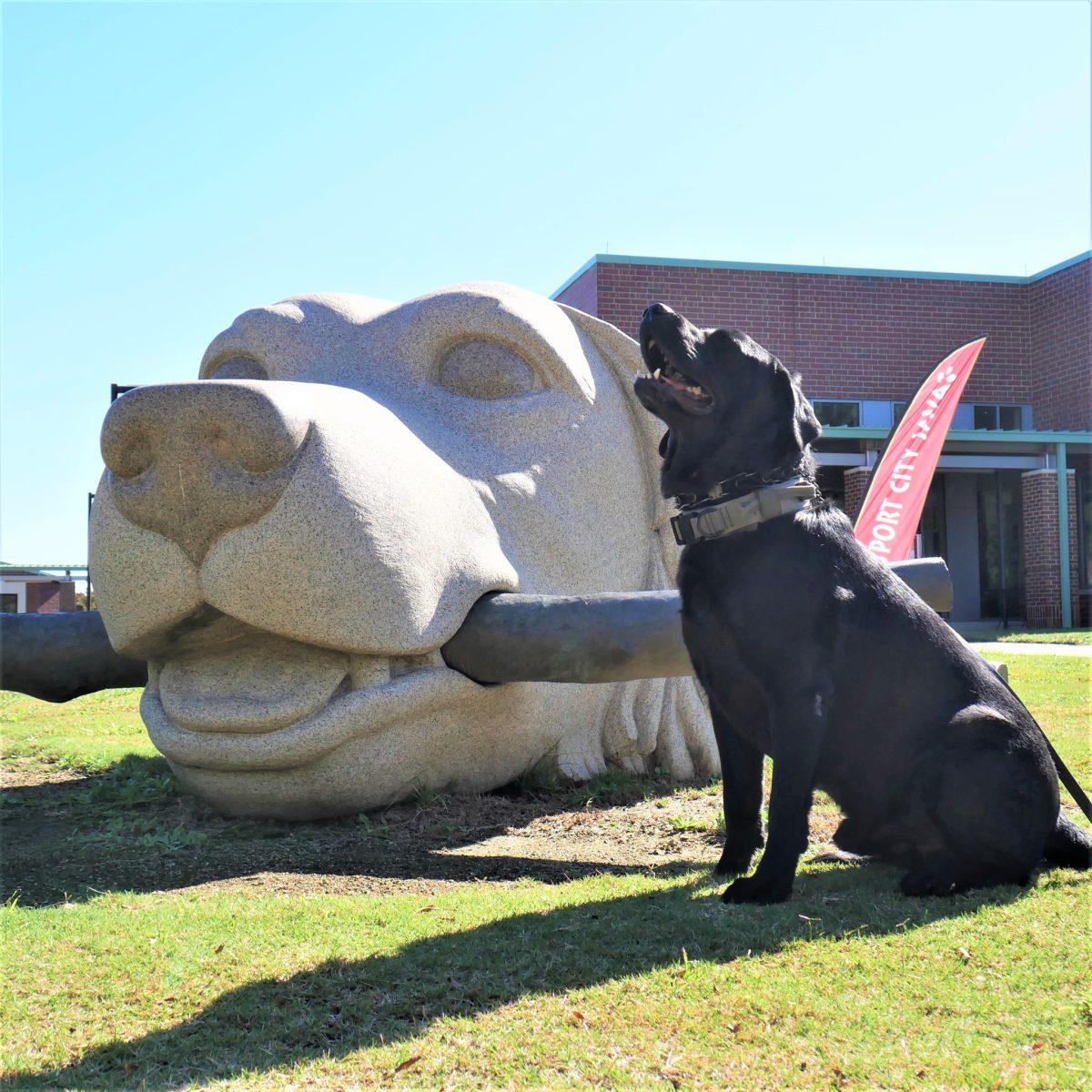Ford and Perdy are parts of their families just like any other dog, but being man’s best friend isn’t the only job they hold. They also make up the NC State police force’s K9 unit, which was founded in 2016 to detect explosives on campus.
Lt. Jeff Williams, the creator of the unit, said a need for explosives detection was identified after the Paris bombings in 2015. According to Williams, the NC State police force was the first law enforcement agency in North Carolina to have dogs trained in person-borne explosives detection, which is a specialized type of bomb detection.
“They not only do traditional searches in buildings and cars and packages for explosives, they can also search for people that might have explosives or guns on them,” Williams said.
Ford is a seven-year-old English Labrador, while Perdy is a three-year-old chocolate Labrador. They’re currently the only two dogs on the unit, as a Labrador named Reed retired in 2019. Williams said he hopes to grow the unit to four dogs, but said it’s a lofty goal due to the cost of around $30,000 for each dog and their training, as well as the amount of training and dedication it takes to be a handler.
“It takes a very special person to be a dog handler, because you live with that dog everyday at home and you live with that dog everyday at work, so you’re literally with a dog more than with family,” Williams said. “To be able to have that relationship with the dog and keep the dog proficient in their training and motivated is just a lot of work, plus the paperwork and record keeping that goes with that, and you go to court and show that you’re proficient at what you’re doing. It’s a lot like having a three-year-old child all day long.”
One of the current handlers is Cpl. Elizabeth Peña, who has been Ford’s handler for four years. She described an average day with Ford, which involves anything from car patrols to answering calls, walking around campus and attending community events.
“It’s really important to me that he gets some kind of odor everyday because that’s a motivating force for him,” Peña said. “He knows when he gets to come to work he’s going to get to play because that’s all work is to him. It’s all play … then once we’re home, he’s an at home dog. He becomes a part of the family, and then we wake up and do it all over again.”
The dogs are trained at K2 Solutions K9 Training Center in Jackson Springs, North Carolina where they learn from a young age to detect odors for an incentive.
“When they’re puppies, they’re imprinted on the odor that they’re going to be finding,” Peña said. “Then they have to find a motivating force for them, so for Ford, it’s a tennis ball. When the dog correctly identifies the odor, since they get their tennis ball, they instill that [motivation] in them, and that’s how they’re trained initially, and then they work up to do the person-borne explosives, to the same kind of method where they search people. When they smell that odor, they’re trained to trail after the person that’s carrying a bag or has the odor on them, and they get that reward again.”
According to Williams and Peña, Ford is currently trained to detect over 21 odors, including manufactured explosives, firearms and precursors to homemade explosives.
Handlers are also trained at K2 Solutions after a selection process to determine how well suited they are to the job and how well they mesh with the dog. Peña described the eight-week-long course, which involved learning detection techniques and practicing them with Ford.
“When I got Ford he was already trained, he was a certified bomb dog already, so it was more teaching me how to work with Ford, it was things to look for when he’s in odor, behavior changes,” Peña said. “That’s the biggest part of being a handler, knowing your dog, recognizing when they’re in odor, because I don’t always want to wait until he sits to know that there’s a bomb there. … It’s a lot of studying and learning [about] your dog and learning how to be a team.”
The K9 unit also partners with NC State’s Veterinary School on a program called K9 Down, which is a program that teaches working dog handlers how to respond to canine health emergencies with advanced first aid. Additionally, Williams said the unit partners with local agencies such as the TSA and Raleigh Police Department for additional training.
Peña encourages anyone who sees her with Ford on campus to come up to her, but she requests people ask permission before interacting with Ford.
“I always love for people to come up and talk to us,” Peña said. “Ford loves attention from anyone and everyone, so the only thing I ask is that people just ask if they can pet him first. It’s really important because sometimes we might be working and you might not be able to tell.“













